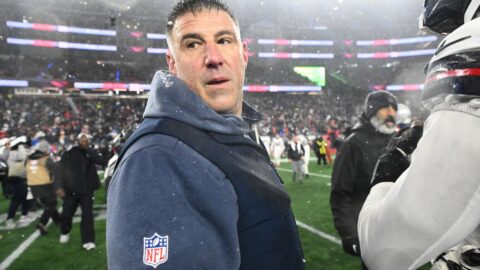 At this point in baseball history, the phrase “Steroids Era” has become as much engrained as saying “Dead Ball Era.” It’s just a given that this is a point in the history of the sport that requires special context to understand, with the underlying premise being that performance-enhancing drugs were a widespread and pervasive phenomenon which drastically altered the way the game was played.
At this point in baseball history, the phrase “Steroids Era” has become as much engrained as saying “Dead Ball Era.” It’s just a given that this is a point in the history of the sport that requires special context to understand, with the underlying premise being that performance-enhancing drugs were a widespread and pervasive phenomenon which drastically altered the way the game was played.
Likewise, this understanding is the basis for the argument in favor of allowing guys like Barry Bonds, Roger Clemens, Sammy Sosa and all the other public faces of the Steroids Era into the National Baseball Hall of Fame in Cooperstown, N.Y. Despite the fact that these players “cheated,” so the point-by-point goes, it’s impossible to ever know who did what and did not, and, whatever the case, the performance of these players was simply the best out of a wholly tainted pool of players.
Basically, this line of thought stipulates that since we don’t and can’t know who did exactly what, and how all this constantly interacting number of PED users precisely affected statistics, singling out any players during the era is unfair. The lack of a litmus test clearly frightens Hall of Fame voters buying into this argument.
However, just because we don’t know exactly what, when and how many times Bonds used a PED (or, subsequently, what, when and how many times pitchers who faced Bonds used them), that doesn’t mean we have to play stupid. Our ignorance doesn’t mean we have to pretend we don’t know with reasonable certainty Bonds did use PEDs, or that he — and several other players — lied in the most character-proving circumstance: under oath.
In short, it’s a big deal to lie to the American government when under oath. If you don’t fathom just how important this is, then you’re probably beyond help. And, though defenders of players of the Steroids Era will point out that no Major League Baseball player has ever been convicted of perjury in steroids cases, that’s only a defense of those who continue to play willfully stupid.
It’s a beautiful thing that the standard of proving perjury in court is so high. Without devolving into legalese, since words are so full of ambiguity, it’s almost impossible to establish “beyond a reasonable doubt” that someone willfully and knowingly lied under oath — and this is one of the reasons America is so great. These kinds of high legal standards — along with the presumption of innocence — are the inherent protections that keep power in the hands of the American people.
But the Hall of Fame isn’t federal court. And just because a fact is not provable in a court of law, that doesn’t mean we don’t damn well know it’s true.
So, again, if you’re the kind of person who tells himself they “can’t know for sure” whether Bonds used steroids, then you’re absolutely beyond help. The preponderance of evidence that’s been levied by lawyers and journalists against so many players is there, as plain as day for everyone to see. But more than that, with cases like Bonds and Clemens, their schedules and methods of using these things are out in the open as well, which means they knew full well what they were doing.
All of which leads back to the original point: That these players know exactly what they did, and they chose to lie about it to the American government. For Sosa, Mark McGwire, Rafael Palmeiro and Miguel Tejada this day was March 17, 2005, speaking to the House of Representatives. For Bonds and Clemens, these days came prior to their respective perjury trials.
So, one last time: Lying to the United States while under oath is a big deal. Perhaps lying to fans, front office officials and journalists is acceptable in the context of the steroids era. After all, the argument that these players were just caught up in something much larger does hold weight in some contexts — many players were simply fighting for their livelihoods and doing nothing more than trying to put themselves on a level playing field.
But where that train of thought breaks down is under oath. Remember that there is a character clause that’s supposed to be accounted for in Hall of Fame voting. Although detestable characters like Ty Cobb may reside in Cooperstown, those whose actions go beyond being bad people and begin to pick at the institution of baseball — Joe Jackson, Pete Rose — have been left out. And make no mistake, given baseball’s rare exemption from the Sherman Antitrust Act, lying to the federal government about actions in baseball does pick at the sport as an institution.
Cobb was not the only racist in baseball, but when Palmeiro got up in front of the House and said “I have never used steroids, period. I don’t know how to say it any more clearly than that. Never,” — only to test positive for stanozolol three weeks later — that should infuriate everyone with a shred of dignity. That was a clear and unadulterated moment where Palmeiro could and should have told the truth, and he decided to only hurt baseball further.
Likewise, Bonds, Clemens and others had their singular moment of reckoning — and refused to do the right thing. Hopefully when the results of this year’s Hall of Fame voting are released on Wednesday, the baseball writers did not fail in their moment of reckoning.



